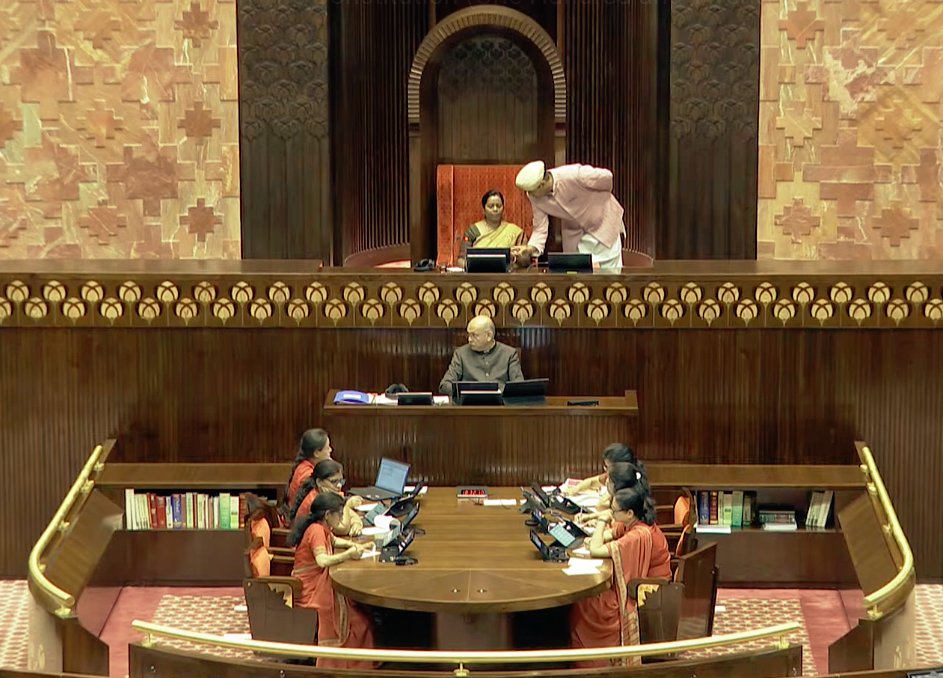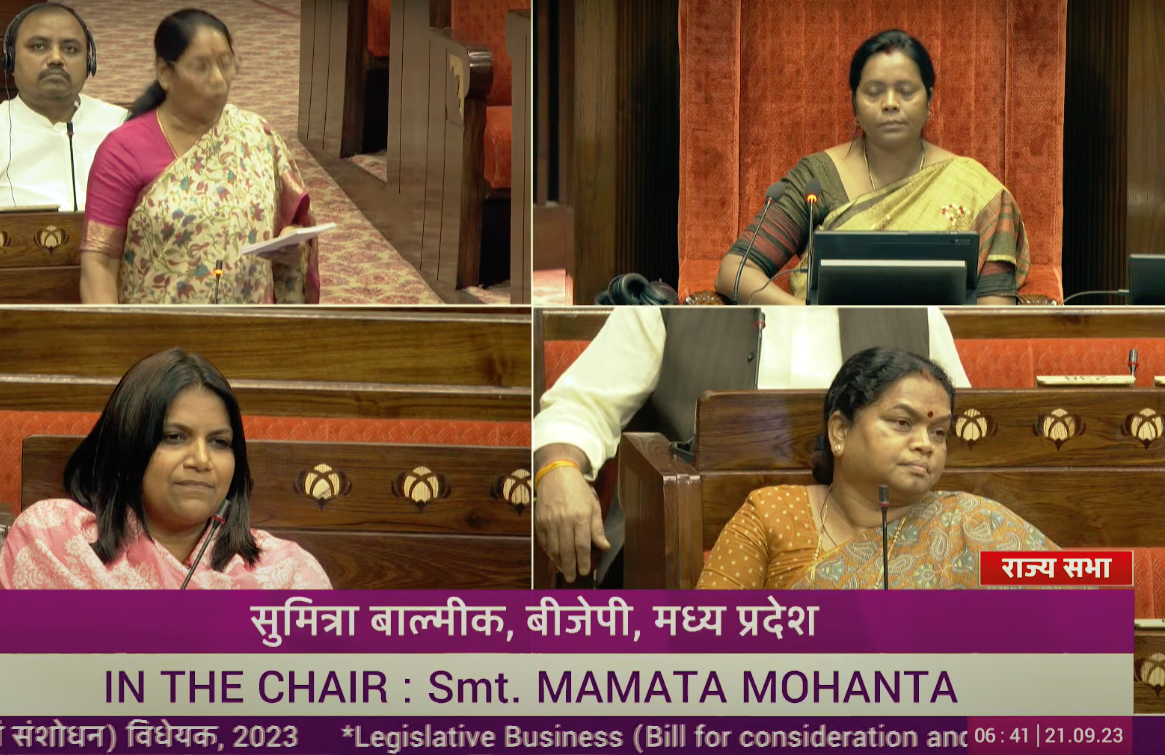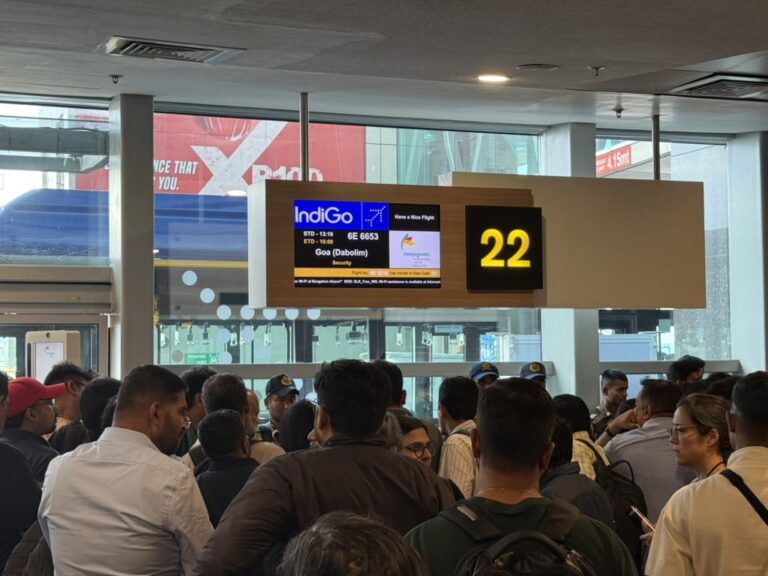
 By G Krishna Mohan Rao*
By G Krishna Mohan Rao*
New Delhi: Parliament today passed the Women’s Reservation Bill, with both the Houses— Lok Sabha and Rajya Sabha—extending overwhelming support to the 128th Constitutional Amendment.
With this, a long cherished dream for gender equality in India took a significant step forward in the present Special Session of Parliament commemorating India’s 75th anniversary of Independence. This momentous achievement comes after decades of attempts and discussions surrounding women’s participation in Indian politics.
The Bill which proposed to reserve one-third of seats in the Lok Sabha and State Assemblies for women, received 454 votes in favour and only two votes against it in the Lok Sabha. The Rajya Sabha unanimously voted, without any opposition, in favour of the Bill.
However, as per Article 360, the Chairman of the Rajya Sabha, Jagdeep Dhankar, ordered voting on the motion. The motion was carried out with all 215 members present and voting in favour. It is needless,to say that all the women MPs, 82 from Lok Sabha and 31 from Rajya Sabha extended full support to the Women’s Bill.

Before the Bill was put to vote in the Rajya Sabha, late tonight, Prime Minister Narendra Modi spoke for a few minutes thanking all the members for their support to 33 per cent women’s reservation.
The Bill was passed by the Lok Sabha yesterday, after which the Bill was introduced in the Rajya Sabha today by the Law Minister Arjun Ram Meghwal. While in Lok Sabha the debate was initiated by the Congress Party leader Sonia Gandhi, in Rajya Sabha today it was started by Congress member Rajni Patil. The tone and tenor of the debate in both Houses reflected that the Bharatiya Janata Party members were taking full credit for bringing the legislation, while the Opposition criticised the motive and intent and questioned why it was delayed for the last nine years.
During the two-day debate, both Houses echoed that women must take full advantage of the legislation and more women should enter politics as equal mainstream players based on leadership qualities and political skills. It was also suggested that unless women become part of the decision-making process at the highest level, there is no meaning to the political empowerment of women. Women should not become proxies for men by becoming dummies. Members pointed out that this Bill will pit women against women in reserved constituencies and reduce political contests in those seats into a battle in a ‘ladies compartment’.
With both Houses passing the Bill without any hitch, it is a significant milestone. But cutting across the party lines, members in both Houses expressed concern over the implementation timeline and wanted to speed up the process. However, Home Minister Amit Shah tried to convince the members that this issue would be taken up soon after the Lok Sabha elections next year, followed by an immediate Census and later Delimitation process. Home Minister assured that the 33 per cent reservation for women would come into force in the 2029 general elections.
In both Houses, southern state MPs expressed apprehension over the delimitation process going against them. Since the Southern states had implemented the population control more effectively than the Northern states, MPs appealed justice should be done and the South should not be penalised when the delimitation process takes up. Top government sources said that the Centre was aware of the concerns of the southern states and they will not suffer during the delimitation exercise to redraw Lok Sabha constituencies based on population figures.
Starting from the Congress Party, almost all regional parties right from the Samajwadi Party, Janata Dal (United), Rashtriya Janata Dal, Trinamul Congress, Dravida Munnetra Kazagham, Aam Aadmi Party etc. demanded caste-based Census and described the Bill as incomplete without an Other Backward Caste (OBC) sub-quota. They said that this is the only way to know how many tribals, Dalits and OBCs are there. In both Houses, MPs unanimously, while demanding caste-based sub-quota in the reservation, wanted the government to implement it immediately without linking it to delimitation. The opposition MPs also demanded a caste census to facilitate the inclusion of the OBC sub-quota.
The Home Minister hit back strongly at the Opposition saying that it was the BJP which empowered OBCs most and blamed the Congress for only paying lip service. He reeled off numbers that 85 of BJP’s Lok Sabha members and 29 Union Ministers were OBCs in the present Lok Sabha. Out of the present total of 1358 BJP Members of Legislative Assemblies in the country, 365 belonged to OBCs, which amounts to 27 per cent. Of the total number of 163 Members of Legislative Councils in the present BJP set-up, 65 belonged to OBCs.
Replying to the debate, in both Houses today and yesterday, Law Minister Meghwal said the law would have faced legal hurdles had the Constitutional obligations of Census and Delimitation not been adhered to. He said the outcome of the Prime Minister’s vision of “women-led development” will be visible in 2047, the date his government has earmarked for making India a developed nation. However, Congress members led by Jairam Ramesh contested the government’s perception that reservation could not have been implemented now because of Constitutional hurdles.
Referring to the MPs’ concern over the implementation of women’s reservation, some of the Union Ministers sought to explain that Census 2021 was put on hold in view of the Covid and would be taken up soon after the general election. It was explained that there are enough technological advancements and digital aids to help shorten the Census timelines. Census 2021 will be the first digital Census, with the respondents being offered the option to self-enumerate through the Census App or the dedicated Census portal before the house listing fieldwork starts and also during the population enumeration stage.
*Senior journalist





